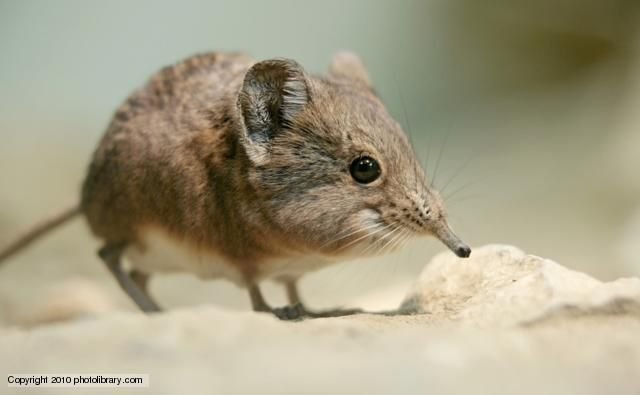
So, what exactly do shrews eat, and how do they catch their meals? Picture this: the world of a shrew is full of scents, sounds, and even vibrations that guide them as they navigate their environments. In this article, we’ll explore the shrew’s diet, its hunting techniques, and why they matter in the ecosystem. By the end, you might find yourself with a newfound appreciation for these little critters!
Understanding the Shrew’s Diet
Shrews are unique among mammals because they have an insectivorous diet, meaning they primarily feast on insects. However, their menu doesn’t stop there. They also munch on other small invertebrates, like worms and slugs, and even some plant material. Here’s why their diet is so varied:
- Insects: Shrews often hunt down beetles, ants, and crickets, which are abundant in their habitats.
- Worms and Slugs: Soft-bodied creatures like earthworms are easy targets for shrews digging into the soil.
- Fruits and Seeds: While they prefer protein, shrews will snack on fruits and seeds when the opportunity arises.
One of the reasons shrews are so effective at finding food is their extremely fast metabolism. They need to eat almost constantly to survive, as they can burn through energy quickly. Imagine needing to snack every couple of hours—it’s like a never-ending buffet! This constant search for food drives their energetic behavior and impressive hunting skills.
Hunting Strategies: The Shrew’s Secret Weapons
You might be wondering how these little mammals manage to catch their prey, especially given their size. Shrews have developed several effective hunting strategies that make them relentless predators. Let’s break down some of the secrets behind their success:
1. Excellent Sense of Smell
One of the shrew’s superpowers is its keen sense of smell. They rely heavily on this sense to locate food. Shrews have a specialized olfactory system that allows them to pick up scents in their environment, detecting the faintest trails of insects or other prey hidden beneath leaves or dirt. It’s like having a built-in GPS for food!
2. Fast Reflexes and Agility
Shrews are incredibly quick and agile. Their small size allows them to dart in and out of tight spaces, making them hard to catch and giving them an edge when hunting. When they spot a potential meal, they can pounce with speed, grabbing their prey before it even realizes what’s happening. Imagine a tiny bullet zooming through the underbrush—that’s how fast they can be!
3. Burrowing and Nesting Tactics
Shrews often hunt in burrows or nests, where they can find insects hiding in the soil or decaying plant material. This digging behavior not only helps them locate hidden food sources but also protects them from larger predators. Picture a shrew digging around like an excavation team, searching for treasures beneath the surface—this is where their persistence pays off!
The Role of Venom in Hunting
Here’s an exciting aspect that sets shrews apart from many other small mammals: some species have venomous saliva. This might sound a bit intimidating, but it’s actually a fascinating adaptation. When a shrew bites its prey, the venom can immobilize insects or small vertebrates like mice or frogs.
This allows the shrew to store its catch for later consumption. Think of it as having a built-in fridge—you catch more food than you can eat at once, so you save some for later! This ability to immobilize prey helps shrews deal with the constant need for food, ensuring they have enough to sustain their high metabolism.
Eco-Friendly Garden Helpers
You might not realize it, but shrews play a vital role in our ecosystems. By keeping insect populations in check, they help maintain balance in gardens and fields. They’re like tiny pest control agents, protecting plants from harmful bugs.
If you think about it, shrews improve our environment in a big way. Farmers and gardeners often benefit from having these little predators around, as they reduce the need for chemical pesticides. Here’s a quick look at how shrews contribute to healthy ecosystems:
- Pest Control: Shrews target harmful insects, keeping their populations under control.
- Soil Health: Their burrowing behavior aerates the soil, promoting healthy plant growth.
- Food Source: Shrews serve as food for larger predators, contributing to the food web.
By understanding their role, we can appreciate how these small creatures fit into the larger picture of nature.
Challenges and Conservation
While shrews are well-adapted to their environments, they’re not without challenges. Habitat loss, climate change, and pesticide use pose significant threats to their populations. When we disrupt their habitats—like when we clear forests or use chemicals—we can unintentionally harm these important creatures.
Conserving shrew populations is crucial for maintaining ecological balance. Here are some simple actions that can help:
- Preserve Habitats: Protect natural spaces and avoid pesticides in gardens.
- Support Local Conservation: Join or donate to organizations focused on wildlife protection.
- Educate Others: Share the importance of shrews and their role in the ecosystem.
By taking these steps, we can help ensure that shrews continue to thrive alongside us.
In a world often filled with larger and flashier animals, shrews are the quiet heroes of our gardens and forests. Their diverse diet and clever hunting strategies make them fascinating creatures that play a significant role in their ecosystems. From their impressive sense of smell to their unique use of venom, shrews showcase nature’s ingenuity in survival.
Next time you spot a tiny, fast-moving creature in your yard, take a moment to appreciate the shrew and all its contributions. They may be small, but they’re mighty in their own right, helping to keep our environments balanced and thriving. So, here’s to the shrew—a little mammal with a big impact!
